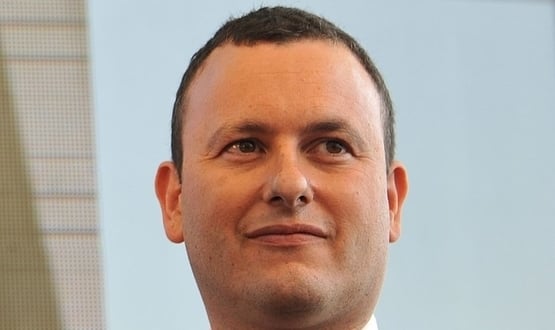There is world-class innovation in the NHS – we’re not starting from scratch
- 1 July 2019

The first of July marks the official launch of NHSX, a new unit which brings together teams from the Department of Health and Social Care, NHS England and NHS Improvement. To mark the launch, NHSX CEO, Matthew Gould, has penned an exclusive piece for Digital Health where he speaks about what he has been up to in the last month and what his aims are in the role.
Over the last month I’ve been on a journey, right across our health and care system. I’ve visited hospitals, GP surgeries, dentists, pharmacies, mental health clinics, care homes and hospices. I’ve spent the day in the back of an ambulance and a night in Watford General.
Before I became the CEO of NHSX, I wanted to meet the patients and staff who come into contact with NHS technology every day, and find out where we’re making progress and where we’re falling short.
What did I learn?
First, the staff blew me away. Everywhere I went I saw a dedication to the welfare of patients and a deep concern for patient safety. I also saw lots of technology that gave me cause for hope. There is some truly world-class digital innovation going on in parts of the NHS. We’re not starting from scratch.
But I was left in no doubt about the scale of the challenge. Across the system huge amounts of staff time is being wasted and patient safety put at risk because of systems that don’t talk to each other and slow, unreliable kit.
There was the woman I saw being wheeled into a resus unit clutching her previous discharge notes, because she knew the hospital wouldn’t have her record to hand. There was the mental health consultant still furious because she’d spent 45 minutes the day before typing up patient notes, only to have the system crash when she went to save.
And I’ll never forget the physio in a hospice in Salford telling me that, because she couldn’t access the hospital records of those she was caring for, she couldn’t see what movements the hospital physios had been working on – with an impact on her ability to bring comfort to the dying.
The purpose of NHSX is to deliver for these people. The tech is just a means to an end.
To keep us focused on that task, I’ve set NHSX five missions. I want you both to help us make progress on them, and hold us to account for delivering on them.
They are: reducing the burden on clinicians and staff so they focus on caring for patients; giving citizens the tools to access services and information directly; ensuring clinical information can be accessed safely wherever it’s needed; aiding the improvement of patient safety; and improving NHS productivity with digital technology.
These are all measurable objectives. In two years’ time you will know whether or not we’re making any progress.
I understand why there’s scepticism about NHSX. Many people have seen this movie before: the new org chart, the bold ambitions, the optimism before the fall. People are right to ask why is this time any different?
The first thing I’d say is that it’s not going to be completely different. We’re not aiming for a revolution to sweep away the old order. There is a lot of good work already going on, whether projects like the Local Health and Care Records or services like NHS Login. We’re going to build on that work not bury it.
And we’re not going to start embarking on any digital grand projects. There will be no giant NHS database. No single solution for every surgery, trust and CCG.
Instead we’re going to focus on standards, setting the rules to ensure our systems can talk to each other, are secure and keep patient data safe. Within those rules we will let local NHS organisations build or buy what they want. After all, you know the needs of your patients and staff much better than me.
But we know there’s no point in agreeing the world’s best standards if the triage nurse in my local hospital still writes everything out on small bits of paper, and if the computers they use are older than my children. We need to make sure local organisations have the capability – tech and human – to transform their services. A relentless focus on improving local digital capability will be a top priority for NHSX.
I am also determined that social care is not going to be an afterthought, but a core part of our mission. I’ve seen the dedication of care workers. Having visited care homes and sat down with care providers, I understand how tech can make a difference to both quality of care, and to the quality of life for staff.
But I don’t want us to do too much. Instead I want to keep the centre thin and put the energy of NHSX into building platforms for other people to innovate on. People like the brilliant young doctor I met, who’d developed an algorithm to assess the risk of a patient missing an appointment.
There are so many clinicians, developers and charities with great ideas that would never have occurred to us, or uniquely specialised knowledge about patient journeys. We need to create the environment and the technical architecture where they can flourish.
Over the last month I’ve learnt a huge amount, and I’m enormously grateful to the doctors, nurses, care workers, paramedics, lab technicians and others who’ve given me the benefit of their time and expertise. But I’m the first to admit I don’t have all the answers.
The one thing I do know is that we have an amazing healthcare system, powered by incredible people, and that together we can use technology to make it even better.




3 Comments
Bertl 4 out of the 5 objectives relate to patients, so I disagree that the patient has been forgotten in this.
Just one thing excluded here. Patients. Patients are people, not aggregations of data.
This is great but many trusts are asking “what happens to Scan4Safety?” under the NHSX banner
Comments are closed.